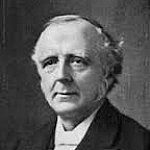Quotes about Sanctification-Practical
This life was not intended to be the place of our perfection, but the preparation for it.
Sanctification is a work of the Triune God, but is ascribed more particularly to the Holy Spirit in Scripture… Though man is privileged to cooperate with the Spirit of God, he can do this only in virtue of the strength which the Spirit imparts to him from day to day. The spiritual development of man is not a human achievement but a work of divine grace. Man deserves no credit whatsoever for that which he contributes to it instrumentally.
Progressive sanctification is subjective or experiential and is the work of the Holy Spirit within us imparting to us the life and power of Christ, enabling us to respond in obedience to Him.
Transforming Grace, NavPress, 1991, p. 105. Used by permission of NavPress – www.navpress.com. All rights reserved. Get this book!
Progressive sanctification very much involves our activity. But it is an activity that must be carried out in dependence on the Holy Spirit. It is not a partnership with the Spirit in the sense that we each – the believer and the Holy Spirit – do our respective tasks. Rather, we work as He enables us to work. His work lies behind all our work and makes our work possible… He is not dependent on us to do His work. But we are dependent on Him to do our work; we cannot do anything apart from Him.
Transforming Grace, NavPress, 1991, p. 115. Used by permission of NavPress – www.navpress.com. All rights reserved. Get this book!
Initial sanctification occurs instantly at the moment of salvation when we are delivered from the kingdom of darkness and brought into the Kingdom of Christ (see Colossians 1:13). Progressive sanctification continues over time until we go to be with the Lord. Initial sanctification is entirely the work of God the Holy Spirit who imparts to us the very life of Christ. Progressive sanctification is also the work of the Holy Spirit, but it involves a response on our part so that we as believers are actively involved in the process.
Transforming Grace, NavPress, 1991, p. 112-113. Used by permission of NavPress – www.navpress.com. All rights reserved. Get this book!
Scripture speaks of both a holiness we already possess in Christ before God and a holiness in which we are to grow more and more. The first is the result of the work of Christ for us; the second is the result of the work of the Holy Spirit in us. The first is perfect and complete and is ours the moment we trust Christ; the second is progressive and incomplete as long as we are in this life. The objective holiness we have in Christ and the subjective holiness produced by the Holy Spirit are both gifts of God’s grace and are both appropriated by faith.
Transforming Grace, NavPress, 1991, p. 102. Used by permission of NavPress – www.navpress.com. All rights reserved.
God’s ultimate goal for us, however, is that we be truly conformed to the likeness of His Son in our person as well as in our standing… Jesus did not die just to save us from the penalty of sin, nor even just to make us holy in our standing before God. He died to purify for Himself a people eager to obey Him, a people eager to be transformed into His likeness… This process of gradually conforming us to the likeness of Christ begins at the very moment of our salvation when the Holy Spirit comes to dwell within us and to actually give us a new life in Christ. We call this gradual process progressive sanctification, or growing in holiness, because it truly is a growth process.
Transforming Grace, NavPress, 1991, p. 105. Used by permission of NavPress – www.navpress.com. All rights reserved. Get this book!
We will never become truly spiritual by sitting down and wishing to become so.
We are justified not without works yet not through works, since in our sharing in Christ, which justifies us, [progressive] sanctification is just as much included as [imputed] righteousness.
Sanctification means intense concentration on God’s point of view. It means every power of body, soul, and spirit is chained and kept for God’s purpose only. It will cause an intense narrowing of all our interests on earth, and an immense broadening of all our interests in God. Are we prepared for God to do all in us that He separated us for? The reason some of us have not entered into the experience of sanctification is that we have not realized its meaning from God’s standpoint. Sanctification means being made one with Jesus so that the disposition that ruled Him will rule us. Jesus has prayed that we might be one with Him as He is one with the Father. The one and only characteristic of the Holy Spirit in a person is a strong family likeness to Jesus Christ and freedom from everything that is unlike Him.
Sanctification is simply the marvelous expression of the forgiveness of sins in a human life, but the thing that awakens the deepest well of gratitude in a human being is that God has forgiven sin.
The one marvelous secret of a holy life lies not in imitating Jesus, but in letting the perfections of Jesus manifest themselves in my mortal flesh. Sanctification is “Christ in you.”… Sanctification is not drawing from Jesus the power to be holy; it is drawing from Jesus the holiness that was manifested in Him, and He manifests it in me.
Adam and Eve were created in God’s image, after His likeness (Gen. 1:26). But in Adam’s sin, the human race was given over to corruption (Rom. 5:12-21). We are still image-bearers (Gen. 9:6; James 3:9), but the image has been distorted (Gen. 6:5; Eccles. 7:29). The goal of sanctification is the renewal of this image. The holy person is being renewed in knowledge after the image of the Creator (Col. 3:10), which means growing in righteousness and holiness (Eph. 4:24). This does not happen all at once, but rather, we are transformed into the image of God one degree of glory to another (2 Cor. 3:18). God is holy, so most basically being holy means being like God. This is why it’s so critical that Christians know the character and work of the one they worship. If you want to know what holiness looks like, look at God.
Piety’s Pattern by Kevin DeYoung taken from The Hole in Our Holiness by Kevin DeYoung, copyright 2012, Crossway Books, a division of Good News Publishers, Wheaton Illinois 60187, www.crosswaybooks.org, p. 38-39.
Sanctification will be marked by penitence more than perfection.
That All May See Progress by Kevin DeYoung taken from The Hole in Our Holiness by Kevin DeYoung, copyright 2012, Crossway Books, a division of Good News Publishers, Wheaton Illinois 60187, www.crosswaybooks.org, p. 139.
God wants you to be holy. Through faith He already counts you holy in Christ. Now He intends to make you holy with Christ. This is no optional plan, no small potatoes. God saved you to sanctify you. God is in the beautification business, washing away spots and smoothing out wrinkles. He will have a blameless bride. He promised to work in you; He also calls you to work out. “The beauty of holiness” is first of all the Lord’s (Ps. 29:2, KJV). But by His grace it can also be yours.
That All May See Progress by Kevin DeYoung taken from The Hole in Our Holiness by Kevin DeYoung, copyright 2012, Crossway Books, a division of Good News Publishers, Wheaton Illinois 60187, www.crosswaybooks.org, p. 146.
Holiness or sanctification is not just about purity or discipline. It is about displaying your radical difference, showing the marks of God’s ownership, and illustrating through your behavior the unusualness of your new life in Christ.
A Mission of Peculiarity: John 17:13-19, Christian Communicators Worldwide, www.CCWtoday.org. Used by Permission.
Did Christ finish His work for us? Then there can be no doubt but He will also finish His work in us.
I dare say that the best faith, or the highest degree of sanctification to which a believer ever attained on earth, considered in itself, is worthy of God’s eternal wrath!
Brief history of Christian interpretation of sanctification:
1. Early church fathers (Clement of Rome, Ignatius, Polycarp) – though noting the grace of God, they emphasized a striving toward holiness.
2. Gnosticism – converts are perfect, set apart from the world.
3. Montanism – demanded separatism from unholy body of believers.
4. Clement of Alexandria – necessity for denial of world and bodily needs.
5. Pelagianism – holiness is result of self-willed moral effort.
6. Augustine – sanctification is God’s activity; not by human effort.
7. Bernard of Clairvaux – mystical personal piety by imitation of Jesus.
8. Peter Lombard – sanctifying grace by infusion of Spirit in believer.
9. Thomas Aquinas – no distinction between justification and sanctification; just infusion of God’s grace in man.
10. Council of Trent – grace inheres in soul of believer by Holy Spirit, and becomes permanent condition or attribute of believer.
11. Roman Catholic doctrine – misstated and overstated subjective implications of infused sanctifying grace, providing a boost of human ability toward perfectibility and divinization.
12. Reformers (Luther, Calvin, et al) – justification emphasized and separated from sanctification; insistence on absence of human merit.
13. Protestant doctrine – over-reacted and overstated objective implications of forensic, legal and extrinsic factors of justification and sanctification.
14. Pietists – reverted to moralistic behavioral standards of holy living, in reaction to epistemological emphasis on doctrine.
15. John Wesley – “entire sanctification,” perfect holiness possible in this life; necessity of “second blessing” experience; Holiness Movement.
16. Karl Barth – reemphasized subjective implications of Christocentric and ontological dynamic of holiness. Evangelical Protestants for the most part resisted; Catholic theologians recognized and appreciated.
Excerpted from: Sanctification, Study Outlines, 1999, www.christinyou.net. Used by Permission.
The role that we play in sanctification is both a passive one in which we depend on God to sanctify us, and an active one in which we strive to obey God and take steps that will increase our sanctification.
Biblicaltraining.org, www.biblicaltraining.org/library/sanctification-wayne-grudem#sthash.LLBUl9Ih.dpuf. Used by Permission.
Sanctification is a progressive work of God and man that makes us more and more free from sin and like Christ in our actual lives.
Biblicaltraining.org, www.biblicaltraining.org/library/sanctification-wayne-grudem#sthash.LLBUl9Ih.dpuf. Used by Permission.
There is a definite beginning to sanctification at the point of conversion, that sanctification should increase throughout the Christian life, and that sanctification is made perfect at death.
Biblicaltraining.org, www.biblicaltraining.org/library/sanctification-wayne-grudem#sthash.LLBUl9Ih.dpuf. Used by Permission.
The guarantee that we are perfectly righteous, accepted, and loved by our Father in heaven is one of our greatest encouragements in the process of sanctification. We are free to love God with all our heart because we know that His love for us is completely secure. We can live as children and not as slaves.
Justification by Jay Harvey taken from Don’t Call it a Comeback, edited by Kevin DeYoung, copyright 2011, Crossway Books, a division of Good News Publishers, Wheaton Illinois 60187, www.crosswaybooks.org, p. 97.
While it is true that people are converted and matured through expositional preaching, the word of the gospel must be wedded to the Spirit’s work in order for conviction of sin, regeneration, repentance and faith, and lifelong perseverance to come. Or to put it differently, “Neither he who plants nor he who waters is anything, but only God who gives the growth” (1 Cor. 3:7)
Expositional Preaching, ©9Marks. Website: www.9Marks.org. Email: info@9marks.org.Toll Free: (888) 543-1030. Used by Permission. p. 34.
Holiness is not something we are called upon to do in order that we may become something; it is something we are to do because of what we already are.
Imputed righteousness makes practical righteousness possible, but only obedience to the Lord makes practical righteousness a possibility.
Sanctification is the triumph of humility over remaining pride.
The Mark of True Greatness, Part 1, Luke 9:46–48, This article originally appeared (https://www.gty.org/library/sermons-library/42-130/the-mark-of-true-greatness-part-1) at www.gty.org. © 1969-2008. Grace to You. All rights reserved. Used by permission.
A righteous identity must issue in righteousness behavior. Such behavior is the outward manifestation of the inward transformation, and it is the only sure proof that such transformation has taken place.
The most compelling motivation for faithful, obedient living should not be the threat of discipline or loss of reward but overflowing and unceasing gratitude for the marvelous mercies of God.
The more that God’s Word is removed from our lives, the more inhibited our spiritual progress becomes. Nothing else can do the work that the truth does. There is no sanctifying power in human wisdom, intuition, insight, or experience. It is only in the Word of God. Only the truth revealed in Scripture sanctifies – sound teaching accurately interpreted, understood, and applied. As divine revelation is embraced, spiritual progress is made. There are no alternative routes to godly character and holy living.
Sanctification begins with spiritually renewing the mind, that is, changing how we think.
Sanctification doesn’t happen by osmosis. We can’t starve ourselves spiritually and still expect to grow in the likeness of Christ. All the facets of Scripture – all its rich benefits and blessings – are not available to those who fail or refuse to open it and study.
This pursuit by the power of the sanctifying Spirit produces a decreasing frequency of sin and increasing love for holiness, which makes less sin feel like more. The truly mature and godly have the most sensitive awareness of their sins, and are the humblest before God because of it.
Sanctification is a process – the process of becoming more like Christ, of growing in holiness. This process begins the instant you are converted and will not end until you meet Jesus face-to-face. Sanctification is about our own choices and behavior. It involves work. Empowered by God’s Spirit, we strive. We fight sin. We study Scripture and pray, even when we don’t feel like it. We flee temptation. We press on; we run hard in the pursuit of holiness. And as we become more and more sanctified, the power of the gospel conforms us more and more closely, with ever-increasing clarity, to the image of Jesus Christ.
The Cross Centered Life, 2002, Used by permission of Sovereign Grace Ministries, p. 31.
Let me be taught that the first great business on earth is the sanctification of my own soul.
We go into the artist’s studio and find there unfinished pictures covering large canvas, and suggesting great designs, but which have been left, either because the genius was not competent to complete the work, or because paralysis laid the hand low in death; but as we go into God’s great workshop we find nothing that bears the mark of haste or insufficiency of power to finish, and we are sure that the work which His grace has begun, the arm of His strength will complete.
Nothing is more relevant to progressive sanctification than the reckoning of ourselves to be dead to sin and alive to God through Jesus Christ (cf. Rom. 6:11).
I am not what I might be, I am not what I ought to be, I am not what I wish to be, I am not what I hope to be. But I thank God I am not what I once was, and I can say with the great apostle, “By the grace of God I am what I am.”
Let not men deceive themselves, sanctification is a qualification indispensably necessary unto those who will be under the conduct of the Lord Christ unto salvation. He leads none to heaven but whom He sanctifies on the earth. This living Head will not admit of dead members.
We change because we have seen a superior beauty and worth and excellence. If you look into the face of Christ and then look into Sports Illustrated or Glamour and are not moved by the superior beauty and worth and excellence and desirability of Christ, then you are still hard and blind and futile in your thinking. You need to cry out, “Open my eyes to see wonderful things out of your Word!” And your life will show it. Where your treasure is – your desire, your delight, your beauty – there will your heart be also – and your evenings and your Saturdays and your money. We are changed by seeing the glory of God in the Word of God.
Wonderful Things from Your Word, Sermon, January 11, 1998, www.DesiringGod.org. Used by Permission.
As we turn to Jesus, He transforms us. As we die to ourselves, we live in Him. He gives us a new heart – cleansed of sin and filled with His Spirit. He gives us a new mind – an entirely new way of thinking. He gives us new desires – entirely new senses of longing. And He gives us a new will – an entirely new way of living.
Taken from Follow Me by David Platt. Copyright © 2013 by David Platt. Used by permission. Website: Radical.net. Page 148.
Jesus comes forgiving and changing the immoral. He bridges the chasm between sordid and glorious. He invites us to cross over from death to life. What was perverted can be converted. To disagree with immorality is not simply to condemn the immoral. It is to identify particular forms of lostness that need finding. We worship a seeking and finding God. We have been sought out and found by a Savior. He reproves the unruly in order to invite us to come seek help.
Making All Things New: Restoring Joy to the Sexually Broken by David Powlison, ©2017. Used by permission of Crossway, a publishing ministry of Good News Publishers, Wheaton, Il 60187, www.crossway.org.
We are not sanctified by our good works, rather, because God sanctified us, by grace, He produces good works in our lives. In fact, we do not sanctify ourselves any more than we justify ourselves. Sanctification is God’s work, and His work in us produces good works.
Sanctification is that inward spiritual work which the Lord Jesus Christ works in a man by the Holy Ghost, when He calls him to be a true believer. He not only washes him from his sins in His own blood, but He also separates him from his natural love of sin and the world, puts a new principle in his heart, and makes him practically godly in life. The instrument by which the Spirit effects this work is generally the Word of God, though He sometimes uses afflictions and providential visitations “without the Word” (1 Peter 3:1). The subject of this work of Christ by His Spirit is called in Scripture a “sanctified” man.
Where there is no sanctification of life, there is no real faith in Christ. True faith works by love. It constrains a man to live unto the Lord from a deep sense of gratitude for redemption. It makes him feel that he can never do too much for Him that died for him. Being much forgiven, he loves much. He whom the blood cleanses, walks in the light. He who has real lively hope in Christ, purifies himself even as He is pure… The faith which has not a sanctifying influence on the character is no better than the faith of devils.
If there is any point on which God’s holiest saints agree it is this: that they see more, and know more, and feel more, and do more, and repent more, and believe more, as they get on in spiritual life, and in proportion to the closeness of their walk with God. In short, they “grow in grace,” as St. Peter exhorts believers to do; and “abound more and more,” according to the words of St. Paul (2 Pet. 3:18; 1 Thes. 4:1).
When I speak of “means,” I have in view Bible-reading, private prayer, regular attendance on public worship, regular hearing of God’s Word, and regular reception of the Lord’s Supper. I lay it down as a simple matter of fact, that no one who is careless about such things must ever expect to make much progress in sanctification. I can find no record of any eminent saint who ever neglected them. They are appointed channels through which the Holy Spirit conveys fresh supplies of grace to the soul, and strengthens the work which He has begun in the inward man. Let men call this legal doctrine if they please, but I will never shrink from declaring my belief that there are no “spiritual gains without pains”… Our God is a God who works by means, and He will never bless the soul of that man who pretends to be so high and spiritual that he can get on without them.
Why is holiness important? 1. The voice of God in Scripture plainly commands it. 2. This is one grand end and purpose for which Christ came into the world. 3. This is the only sound evidence that we have a saving faith in our Lord. 4. This is the only proof that we love the Lord Jesus Christ in sincerity. 5. This is the only sound evidence that we are true children of God. 6. This is the most likely way to do good to others. 7. Our present comfort depends much upon it. 8. Without holiness on earth we shall never be prepared to enjoy.
We secretly wish we could have a “vicarious” Christianity, and could be good by proxy, and have everything done for us. Anything that requires exertion and labor is entirely against the grain of our hearts. But the soul can have “no gains without pains”… To be a Christian it will cost a man his love of ease.
How would the great work of sanctification go on in a man if he had no trial? Trouble is often the only fire that will burn away the dross that clings to our hearts. Trouble is the pruning-knife which the great Husbandman employs in order to make us fruitful in good works. The harvest of the Lord’s field is seldom ripened by sunshine only. It must go through its days of wind, and rain, and storm.
Christ will never be found the Savior of those who know nothing of following His example. Saving faith and real converting grace will always produce some conformity to the image of Jesus (Col. 3:10).
Genuine sanctification is a thing that can be seen.
Jacob is about to enter the Promised Land. He will be one of the venerated Patriarchs of the faith. But before Jacob can become Israel, the man must be broken. Jacob needs to learn that his life is to be one of continual striving with God, but doing it with full dependence on God. He will learn that with God there is a continual heat from the refiner’s fire, but through the adversity there is an unspeakable joy in the journey. And though God probably won’t be wrestling with any of us physically like He did with Jacob, there is a continual tension of finding our greatest peace when we are most intimate in close communion with God. At times we struggle, but in the pain we learn to submit to His will, allow Him to expose our defects, yield to the wounds He creates and then trust Him that the pain is for our greatest good as the “old man” is further put to death. If we act in the flesh and run away or defend ourselves or blame others or whine and complain, we’ll never experience this. As creatures so prone to follow our selfish instincts, there is a serenity that comes when God wrestles us to the ground, breaks us further of our pride and reminds us that our sufficiency is only in Him.
God’s primary concern is not to change the circumstances, but to change His children in the midst of the circumstances.
As we are already positionally before God like Christ, our lives as we live them in God’s holy presence, progressively become more like Christ as well. Our entire lives if we have the Holy Spirit (2 Cor. 3:8), if we are with unveiled eyes reading His holy Word (2 Cor. 3:18), if we have been clothed with Christ’s holiness (2 Cor. 3:9), if we are living in God’s holy presence (2 Cor. 3:18), we continually will be conformed and transformed to His holiness (2 Cor. 3:18).
Do you want to go to heaven? I mean, do you really want to go to heaven? Let’s remember that heaven is a place of perfect holiness. That means as we delight in beholding God’s glory now, it is as if we are, 2 Corinthians 3:18, “beholding [Him] as if in a mirror.” Heaven will be direct exposure to the fullness of His glory. Why there and not here? Because we still have sin. Yet the split second Christians die, they are instantly transformed to be as righteous as Christ. Now we are declared as perfectly righteous as Christ. Then we will be made as perfectly righteous as Christ. If you are in Christ, this will be your state into all of eternity. Therefore I have to make the two following conclusions: One, we can think of our time here on earth as we are being made more holy like God only as preparation for our future existence with Him. And two, if you really want to go to heaven and be as holy as God throughout all of eternity, isn’t it safe to assume you’d desire it right now as well?
Sermon, A Successful Gospel-Centered Ministry – Part 1, 2 Corinthians 4:1-6, April 13, 2014.
The false gospel, the man-centered position states that I need to clean myself up in order for God to accept me. The true gospel, the God-centered position teaches that I come to God broken and He begins the process of cleaning me up, making me into a masterpiece. The former is self-reformation. The latter is God-transformation. The former is God will only accept a masterpiece. The latter is God will only make a masterpiece. So we come to God messy, with nothing to offer and then God in His divine love begins to shape us into the beautiful image of Jesus Christ (see Eph. 2:10).
The word “transformed” in 2 Corinthians 3:18 is from the Greek verb “metamorphoo.” It is where we derive our English word, “metamorphosis.” When I think of a metamorphosis, I think of a butterfly. Before Christ, you lived for self. You were a slave to sin and Satan and your spiritual state in the eyes of God was like an ugly caterpillar. But due to Christ’s work on the cross, you are now a beautiful butterfly in His eyes. And while that is your nature positionally before Him, you have the ability with Him to be transformed practically to be more like Him too. As God is the epitome of moral beauty, His children should (should I say “will”) be growing into that beauty as we behold our God and undergo an ongoing beautiful metamorphosis by the power of the Holy Spirit. Practically speaking, all Christians are moving from an ugly caterpillar to a beautiful butterfly as they mature in their faith.
Sermon, A Successful Gospel-Centered Ministry – Part 1, 2 Corinthians 4:1-6, April 13, 2014.
It’s all are welcome as they are, but when you come change is expected. Or it’s not clean yourself up before God will accept you, but when God accepts you He will clean you up. Or it’s God loves sinners, but He loves them too much to keep them sinners. Or as I like to say, God doesn’t clean His fish before He catches them, but after He catches them He always immediately starts cleaning them.
When we initially accepted Christ, we were saved from sin’s penalty. Christ received the full wrath for our sins on Himself. And the day will come when we step into glory that we will be saved from sin’s presence. Yet right now we briefly tarry on earth existing in the tension between the two worlds. God has given us grace to overcome sin and become more like Jesus Christ which shows the life transforming power of the Gospel at work in us. So, we have been saved from sin’s penalty. We are being saved from sin’s power. And we will be saved from sin’s presence.
We know our sin brings personal consequences, but let’s remember it also affects others. You are part of a body. You sin, others in the church are hurt. Yet most of all, it affects how other people think about Christ. The stakes cannot be higher regarding the need for your personal moral integrity. Our entire life must be seen in the light of the Gospel’s proclamation through Christlike personal transformation.
Social ethics must never be substituted for personal ethics. Crusading can easily become a dodge for facing up to one’s lack of personal morality. By the same token, even if I am a model of personal righteousness, that does not excuse my participation in social evil. The man who is faithful to his wife while he exercises bigotry toward his neighbor is no better than the adulterer who crusades for social justice. What God requires is justice both personal and social.
The Christian life requires hard work. Our sanctification is a process wherein we are coworkers with God. We have the promise of God’s assistance in our labor, but His divine help does not annul our responsibility to work (Phil. 2:12-13).
Taken from: Essential Truths of the Christian Faith by R. C. Sproul, 1992 (Sproul), p. xix, Used by permission of Tyndale House Publishers, Inc. All rights reserved.
Does that mean He plays favorites for the likes of outspoken Christians like Tim Tebow or Drew Brees? Of course. Because God loves those who are His, even as He loves His own Son, God is certain to favor them. That favor, however, isn’t a path to winning a football game, but is instead the path to true victory, becoming more like Jesus. God isn’t glorified in giving Tim Tebow unlikely victories that somehow redound to God’s glory. No, God is glorified in making His children, including Tim Tebow, more like His Son. Sometimes that means leading them to the thrill of victory. Sometimes it means leading them through the agony of defeat.
Ask RC: Does God Really Decide, and Care Who Wins a Football Game? January 28, 2014, Used by Permission.
Beware of self-righteousness. The black devil of licentiousness destroys his hundreds, but the white devil of self-righteousness destroys his thousands.
The saints are sinners still. Our best tears need to be wept over, the strongest faith is mixed with unbelief, our most flaming love is cold compared with what Jesus deserves, and our intensest zeal still lacks the full fervor which the bleeding wounds and pierced heart of the crucified might claim at our hands. Our best things need a sin offering, or they would condemn us.
Some Christians overlook the blessing of sanctification, and yet to a thoroughly renewed heart this is one of the sweetest gifts of the covenant. If we could be saved from wrath, and yet remain unregenerate, impenitent sinners, we should not be saved as we desire, for we mainly and chiefly pant to be saved from sin and led in the way of holiness.
I caution against referring to “carnal” and “spiritual” as rigid categories or classes of Christians. The idea of a distinctive class or category implies a strict line of demarcation between one group of believers and another. It suggests there are readily identifiable stages in the Christian life into which one may enter if certain things are done or out of which one may fall if other things are done. Sanctification, however, is far too fluid for such strict categorization. In other words, sanctification is a process which, because of its constantly dynamic and progressive nature, defies rigid classifications.
The Carnal Christian – Study of 1 Corinthians 3:1-3, November 6, 2006, www.enjoyinggodministries.com. Used by Permission.
Sanctification is a dynamic outworking of the gospel in the life of every believer. The process of conformity to God thrives not when we tweak our attitude here, and modify our behavior there, but when we grow entranced with God, and Christ the “founder and perfecter of our faith” looms large before us, magnificent in holiness, awesome in splendor, tenacious in love.
Sanctification by Owen Strachan taken from Don’t Call it a Comeback, edited by Kevin DeYoung, copyright 2011, Crossway Books, a division of Good News Publishers, Wheaton Illinois 60187, www.crosswaybooks.org, p. 115-116.
Sanctification is progressive; it involves our partnership with God; it is rooted in the gospel; it is carried out by faith. Sanctification is the experience of the power of God in the heart of the believer. All this work is driven toward the end that we might glorify God. Sanctification is doxological, motivated by an overarching purpose transcendent above all others: the glorification of the God whose perfect holiness requires nothing else. Sanctification is of God, and sanctification is for God.
Sanctification by Owen Strachan taken from Don’t Call it a Comeback, edited by Kevin DeYoung, copyright 2011, Crossway Books, a division of Good News Publishers, Wheaton Illinois 60187, www.crosswaybooks.org, p. 108.
When we believe the gospel, and the Holy Spirit resides in us, we are free to experience the explosive current of holiness that flows from the Godhead into the soul of a believer. Sanctification is no meek and mild affair, no mere rearranging of spiritual furniture. It is an electric process, an exhilarating experience of the power of God within us. It births a hunger and thirst for the things of God that is satisfied only in Him. As we daily believe the gospel and apply it to our lives, we taste the essence of biblical sanctification.
Sanctification by Owen Strachan taken from Don’t Call it a Comeback, edited by Kevin DeYoung, copyright 2011, Crossway Books, a division of Good News Publishers, Wheaton Illinois 60187, www.crosswaybooks.org, p. 108.
If traces of Christ’s love-artistry be upon me, may He work on with His divine brush until the complete image be obtained and I be made a perfect copy of Him, my Master.
Jesus has gone to prepare a place for us, and the Holy Spirit has been sent to prepare us for that place.
Advance in the Christian life comes not by the work of the Holy Spirit alone, nor by our work alone, but by our responding to and cooperating with the grace the Holy Spirit initiates and sustains.
Spiritual Disciplines for the Christian Life, 1991, p. 243, Used by permission of NavPress – www.navpress.com, All rights reserved. For more information please see the website www.BibicalSpirituality.org. Get this book!
There is much Spirit-filled human effort involved in sanctification. On the one hand, “it is God who is at work in you, both to will and to work for His good pleasure” (Phil. 2:13). On the other hand, we’re commanded in 1 Tim. 4:7, “discipline (ourselves) for the purposes of godliness.” God uses means of grace to sanctify us, chief of which are the personal and corporate spiritual disciplines. In the personal realm, these include intake of God’s Word, prayer, private worship, fasting, silence and solitude, etc. These are balanced by disciplines we practice with the church: public worship, hearing God’s Word preached, observance of the ordinances, corporate prayer, fellowship, etc.
What Role Does Sanctification Play in Salvation? www.BiblicalSpirituality.org, Used by Permission.

































